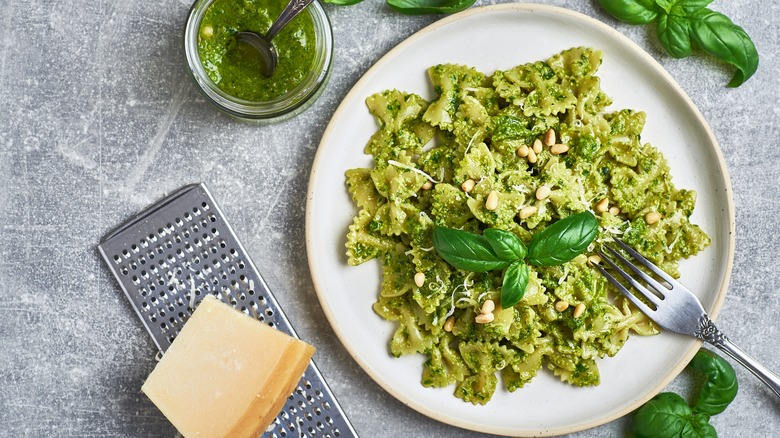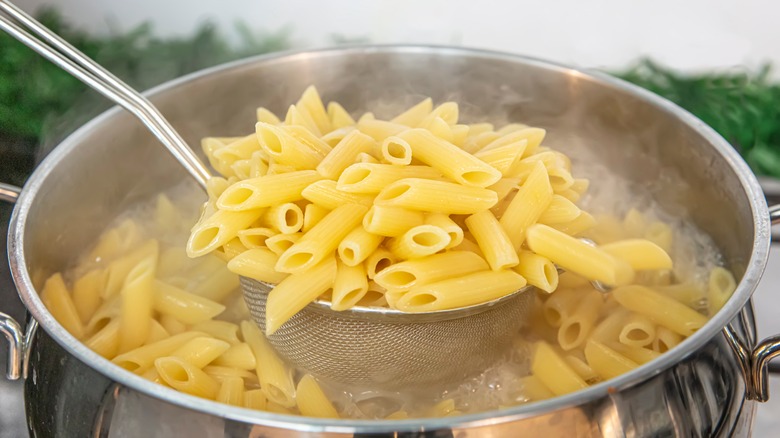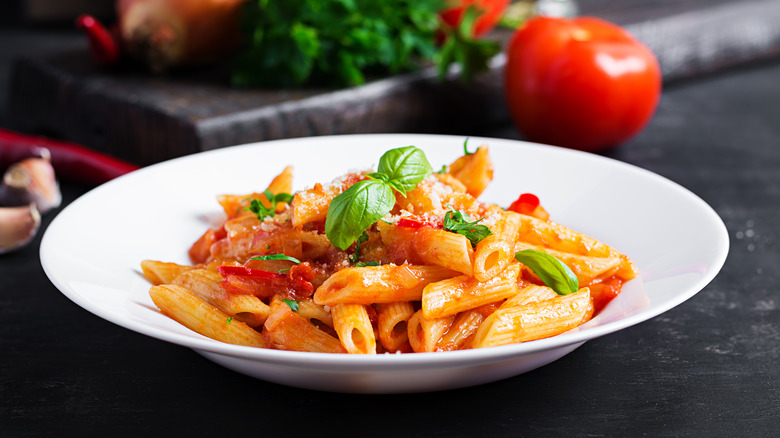You're Probably Reheating Your Pasta Wrong, But We're Here To Help
Whether cooking a big meal or dining out, for those who love it, leftover food is one of life's simple pleasures. It's a great feeling to remember you have a delicious dish waiting for you in the refrigerator, but that's why it's also essential to ensure the dish's integrity when you reheat it. Cooked pasta can be a bit finicky to reheat; depending on the type of sauce and the dish's ingredients, some methods work better than others. But if you're ready to enjoy a second helping of pasta coated in sauce, you'll definitely want to reheat it in the oven rather than using the microwave or stovetop.
As with any reheating method, keeping an eye on the dish is essential; you must ensure your pasta doesn't dry out. A little-known tip about maintaining your pasta sauce's quality: don't be afraid to add a bit of water during the reheating process.
You should be reheating your pasta in the oven
Don't go for the microwave or stovetop. Rather, preheat the oven to 350 F, and reheat your pasta in an oven-safe dish. The method is easy enough, but you want to check on the dish every five minutes to ensure the oven heat isn't drying it out.
If you're worried about the pasta getting too dry, use the classic aluminum foil method and cover the dish with a piece of foil to prevent direct heat. And the best way to make sure the sauce retains its texture is to add a bit of water to it. This way, the sauce won't dry up during the reheating process.
If you're reheating any kind of cream sauce, choose the oven over the microwave. Since microwaving reheats so quickly, a cream sauce's milk fats will likely separate or curdle, leaving you with a chunky, funky texture. Be especially careful with the oven, too, as the same thing can happen, but since it heats at a slower rate, you have more time to check the temperature and remove the pasta before that cream sauce gets too hot.
How long can you keep leftover pasta?
As with most foods, cooked pasta and its sauce won't last forever, so you want to ensure you don't wait too long to reheat it. Cooked pasta should not be kept in the refrigerator for more than a week, but depending on the type of sauce, its shelf life might be even shorter.
Tomato sauce can last up to a week, but you should check it after about five days to ensure it doesn't have an off smell or look. However, if you're using a cream or dairy-based sauce, don't expect it to last that long. Alfredo sauce will likely only stay fresh for up to four days.
Pasta can be frozen, too, but be careful about freezing certain sauces. Tomato sauce and even vodka sauce (despite containing cream) both freeze well, but any heavily dairy-based sauce might change texture due to the fat separating. Still, it will be perfectly safe to eat — just not as cohesive.


